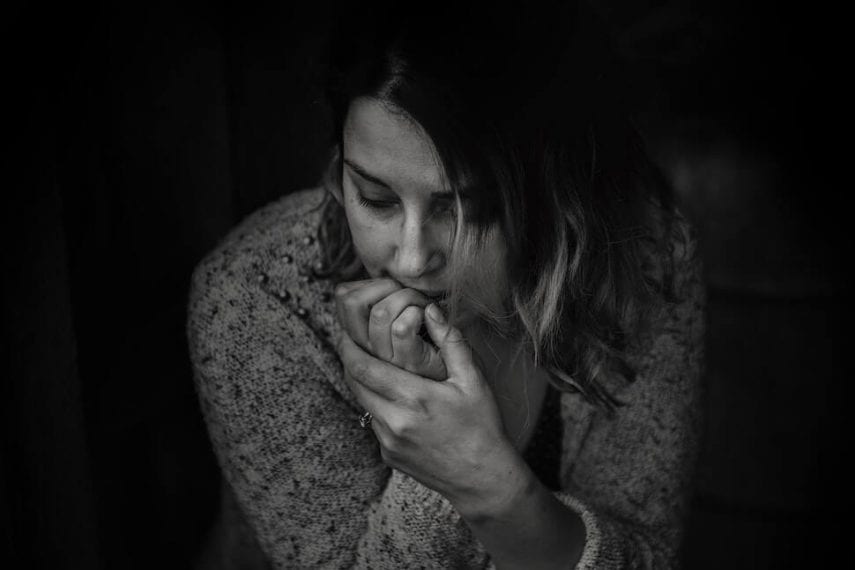Depression Isolation: What To Do When a Loved one Becomes Socially Withdrawn

It’s easy for someone with depression to become isolated. Withdrawing from other people, even best friends and close family members, results from feeling sad, hopeless, ashamed, fatigued, and apathetic. Social isolation is dangerous and can increase the risk of certain health problems. It also makes depression even worse. If you are worried about a loved one who has become withdrawn for days or weeks in a row, it’s time to take action. Engage your friend, get them out of the house, do healthy activities together, and push for treatment.
Social isolation is dangerous. As humans, we are naturally social, and being around and engaged with other people is good for our health, psychologically, emotionally, and physically. There are several risk factors for becoming withdrawn, and having depression is a big one. If you have a friend or family member, someone you care about, who is struggling with depression and spending a lot of time in isolation, there is reason to be concerned. You can take steps to engage that loved one, to help them reach out more, and to get professional treatment if necessary.
Major depression is a mental illness that causes symptoms like loss of interest in activities, feelings of hopelessness, guilt and shame, fatigue, difficulty focusing or thinking, and changes in sleeping and eating patterns. The symptoms persist and are severe enough to cause dysfunction and impairment in several areas of your life, including social relationships.
Becoming socially isolated is not uncommon with depression. Often, depression becomes like a trap. It makes just getting out of bed in the morning a big challenge, so facing the day outside the house and interacting with other people can be insurmountable. The urge to back away, to shut off and isolate is expected. But this isolation, in turn, only feeds depression and makes it worse.
Depression Isolation Is Dangerous – When to Worry
Withdrawing from other people is typical with depression, but it is also risky. Anyone, regardless of a diagnosis of depression, has serious consequences for physical and mental health. Most immediately, being isolated only deepens a depressed mood and triggers loneliness and sadness. But there are other consequences too.
Studies have found that social isolation increases the risk for health problems to the same degree as having an alcohol use disorder or smoking 15 cigarettes a day. Isolation is even worse for physical health than being obese. There is even a correlation between social isolation and premature death.
Some degree of withdrawal during a depressed episode is normal and not a big cause for concern—for instance, a friend who spends one day in bed but gets back to work the next day or calls you at night to talk. But when you see someone consistently and repeatedly refusing to leave the house, canceling plans, and not answering phone calls or texts, you should be worried.
If you have a loved one who is showing signs of becoming significantly socially withdrawn, don’t just stand by and let it happen. Do what you can to engage that friend or family member, reach out to them, and push them to get needed treatment.
Talk About It, and Talk About It Some More
It’s not easy to approach and talk to someone about their depression and limited social engagement. It is important to do so, though, despite the discomfort. If you aren’t sure what to say, that’s ok. Simply be a good listener. Tell your friend or family member that you’re concerned and that you want to help and listen.
Just having someone express that they care and are worried is powerful. Understand and make clear that you aren’t there to fix your friend or tell them what to do. Check in, listen, and be compassionate, not judgmental. And then go back and check in again. Someone who is withdrawn socially will probably not come to you, so you need to keep going to them.
Get Them out of the House
Just getting out of the house can make a big difference to someone who is struggling, but it may take you pushing to make it happen. Make plans to pick your friend up and go out for something easy and low-pressure like a cup of coffee nearby or even just a walk around the block.
Don’t force your loved one to be around too many people or to do too much. A party or a loud restaurant can be overwhelming for them. Do something simple and easy, just so they can get out of their safe zone and start engaging, even if it’s with only one person. That little bit of activity and interaction can help to lift some of the feelings of depression and loneliness.
Call for a Free Confidential Assessment.
877-727-4343Help Them Connect With Others
Any kind of social connection you can help your friend or family make with other people will be beneficial. For instance, support groups for depression can be great for getting out of a period of withdrawal. Of course, your friend may not be willing to take that initiative on their own, but with your encouragement and participation they may do it. Find a local group you can take your friend to, where they can talk about their experiences or just listen to others.
If they aren’t ready for that step, try some easier connections. Bring another friend around or a family member who you know will be positive and supportive. Adding in a little more socialization here and there at a slow pace can help your friend start opening up again in a way that feels safe.
Discourage Drinking and Drug Use – Push for Healthy Habits
Isolation is an unhealthy habit and response to depression, but there are other traps your loved one may fall into while hiding out at home. Substance use, for example, is common with depression and can be dangerous and worsen depressed moods.
Be a good model for your loved one for healthy habits. Don’t drink with them or indulge in other destructive behaviors. Instead, encourage healthier activities and habits: go for a walk together instead of watching TV; enjoy a talk over a cup of tea instead of a glass of wine; make a healthy, homemade dinner instead of ordering pizza.
Depression Treatment in a Residential Facility
If your loved one is dangerously withdrawn, they are not managing depression well. They could benefit from treatment. Help them find the right facility for therapy and treatment. Residential care is a great choice for depression, because it provides a safe place to focus on healing and to benefit from a variety of professionals.
Another benefit of choosing residential facilities for treatment is that they come with a built-in community. Depression patients become a part of this group and work with new friends to learn and heal. Group therapy sessions, activities, recreation, even just meal times together can help someone overcome isolation and practice new strategies for being more social.
Depression is a very serious mental illness, with potentially harmful complications like social isolation. It’s important to be aware of loved ones struggling with depression and any signs that they are becoming withdrawn. Pay attention, offer your support, be there to help them make healthy choices, but above all make sure your loved one gets professional treatment to learn to manage this condition and minimize isolation in the future.
Bridges to Recovery offers comprehensive treatment for people struggling with mental health disorders as well as co-occurring substance use disorders. Contact us to learn more about our renowned Los Angeles-based program and how we can help you or your loved one start on the path to lasting wellness.






